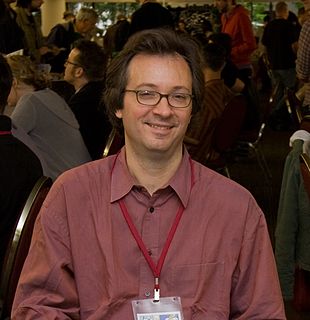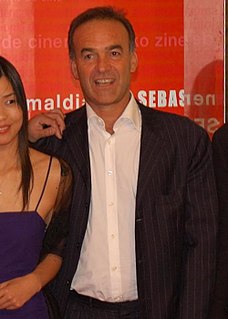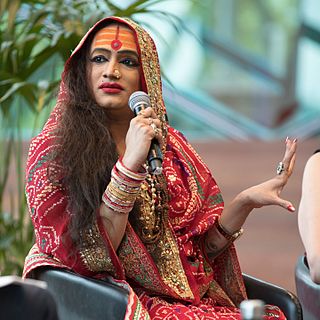Top 269 Marginalized Quotes & Sayings - Page 5
Explore popular Marginalized quotes.
Last updated on April 19, 2025.
In a lot of ways, L.A. has always been kind of colonized or marginalized by New York. It still goes on to this day, but I would add that it really feeds New York because it provides artists for that system. This is really a laboratory where they grow the seeds and they go there and blossom because there's still not a lot of support in L.A. for artists.
Bernie Sanders is an impressive guy. His authenticity and his credibility stem precisely from the fact that he has been marginalized from the mainstream political process for decades. He's been in the US Senate, yeah, he has had a life in politics for thirty years, but he's never really been able to get anything done. He's the only socialist in the US Congress. He's not a Democrat or a Republican, but he's always been saying the same things about income inequality, in particular.
Historically, women's voices were central to food narratives, yet they were marginalized, and what happened at the table, the kitchen, the garden, and the fields was silenced. I'm very interested in how food appears in the historical record and animates our understanding of the South. It provides texture both to the past and to our contemporary experience. My work is not about discovering new voices, but rather it encourages voices that have been silenced to come forward and speak a little louder.
Cocaine and crack are essentially the same thing. Cocaine is a middle-class drug. Crack is a poor person's drug, which carries a felony conviction for possession. And once you get this felony conviction, which given that the whole community is pretty much strung out on it, you become basically sidelined into an alternative kind of lifestyle. You become completely marginalized. You can't get public housing, you can't get a lot of jobs, you can't vote. You have a real problem doing anything to get you out of the rut that you're in. You become basically a non - person.
Even though kids may have planned for months for the trip to Disneyland, some may be feeling very homesick, very forlorn, or very marginalized by the group. Your capacity to perceive those kinds of situations and respond to them in a pastoral way is the stuff you are teaching. And even though the kids may appear to be ignoring you, they are very aware of what you are doing and how you are doing it. They are also very aware of what you are missing and not picking up on.
No matter the specific techniques involved, historically mass surveillance has had several constant attributes. Initially, it is always the country’s dissidents and marginalized who bear the brunt of the surveillance, leading those who support the government or are merely apathetic to mistakenly believe they are immune. And history shows that the mere existence of a mass surveillance apparatus, regardless of how it is used, is in itself sufficient to stifle dissent. A citizenry that is aware of always being watched quickly becomes a compliant and fearful one.
But the poor person does not exist as an inescapable fact of destiny. His or her existence is not politically neutral, and it is not ethically innocent. The poor are a by-product of the system in which we live and for which we are responsible. They are marginalized by our social and cultural world. They are the oppressed, exploited proletariat, robbed of the fruit of their labor and despoiled of their humanity. Hence the poverty of the poor is not a call to generous relief action, but a demand that we go and build a different social order.
Over the period from 1988 to 2005, the income share of the top five percent has grown by about 3.5 percent of global household income, and the shares of all the other groups have diminished. The greatest relative reduction was in the bottom quarter, which lost about one third of its share of global household income, declining from 1.155 to 0.775 percent, and now is even more marginalized.
Robin Williams was an airman, a doctor, a genie, a nanny, a president, a professor, a bangarang Peter Pan, and everything in between. But he was one of a kind. He arrived in our lives as an alien - but he ended up touching every element of the human spirit. He made us laugh. He made us cry. He gave his immeasurable talent freely and generously to those who needed it most - from our troops stationed abroad to the marginalized on our own streets. The Obama family offers our condolences to Robin’s family, his friends, and everyone who found their voice and their verse thanks to Robin Williams.
Do you and I believe him (Christ) enough to obey him and to follow him wherever he leads, even when the crowds in our culture - and maybe in our churches - turn the other way?...For the sake of an increasingly marginalized and relatively ineffective church in our culture, I want to risk it all. For the sake of my life, my family, and the people who surround me, I want to risk it all.
When these resources are degraded or polluted, then there are fewer of them for the rest of us, and then we start competing for them and eventually as we compete, there are those of us, who have the capacity, who have the ability to be the controllers, to decide who accesses them, how much they access, and eventually there is a conflict. Those who feel marginalized, those who feel excluded, eventually react in an effort to get their own justice, and we have conflict.
It is my belief that in our mad world where there is so much pain, rivalry, hatred, violence, inequality, and oppression, it is people who are weak, rejected, marginalized, counted as useless, who can become a source of life and of salvation for us as individuals as well as for our world. And it is my hope that each one of you may experience the incredible gift of the friendship of people who are poor and weak, that you too, may receive life from them. For they call us to love, to communion, to compassion and to community.
I try to educate people. I've told the hijra community that it's not about getting breasts or having sexual reassignment surgery. First we need our rights. We need our dignity. We need inclusion in every bloody policy for the marginalized. We need education. We need dignified shelter. There are many like me who are able to earn without begging. But the fact is that before even coming into the social sector, I was running a dance class, and before that I was a model coordinator. I didn't want to beg, or do sex work, or sell myself.
You have to start looking in the mirror and saying, 'this is who I am, this is what I am and this is how I'm going to be' and start demanding more from yourself. In spite of everything that this system has thrown at us, we still have to live at the end of the day. We still have to find purpose and find ways to prosper and make a profit so you have to find ways to stand on your own two feet and fulfill your potential as a black man or black woman on this planet no matter how marginalized or oppressed you may be.
I think that for those of us who come from oppressed backgrounds and who do our work in marginalized communities, recovering our innocence is one of the most important acts of self-liberation and de-colonization. Not letting the requirement that we adapt to impossible circumstances and unconscionable crimes leave us shackled to the kind of cynicism and armor such that we can't breathe and laugh and magnetize to ourselves all the genius and love and support that we need to transform the situation. That's probably the biggest challenge, is to recover our innocence.
These things are happening in large measure because of us. We in this country burn 25 percent of the world's fossil fuel, create 25 percent of the world's carbon dioxide. It is us - it is the affluent lifestyles that we lead that overwhelmingly contribute to this problem. And to call it a problem is to understate what it really is. Which is a crime. Crime against the poorest and most marginalized people on this planet. We've never figured out, though God knows we've tried, a more effective way to destroy their lives.
One should be weary of drawing too many inferences from a single poll. You can find wildly disparate results with two different polls. There is no question that American Muslims remain one of the most marginalized and demonized groups in United States. There has been a sustained propaganda campaign against Muslims for over a decade and it doesn't disappear over night. Those attitudes are hardened. But one of the things that polling often doesn't measure is the intensity of opinions.
I tell young actresses today who are looking to get into films, "First of all, you are marginalized by the color of your skin." I tell actresses, "If you're too tall, if you're too fat, you're not going to work. I don't care how talented you are." It's a business, and sex sells. Sex, action, special effects, and violence sell. Yes, you can have art films about the triumph of the human spirit and all of that, but you'll have it done with a big-budget icon with a $20 million salary.
Writing in African languages became a topic of discussion in conferences, in schools, in classrooms; the issue is always being raised - so it's no longer "in the closet," as it were. It's part of the discussion going on about the future of African literature. The same questions are there in Native American languages, they're there in native Canadian languages, they're there is some marginalized European languages, like say, Irish. So what I thought was just an African problem or issue is actually a global phenomenon about relationships of power between languages and cultures.
She lived almost fifty years of her life completely dedicated to the care of the poor and the marginalized. Astonishingly, for those nearly fifty years she identified completely with the poor she served by her own experience of being seemingly unwanted and unloved by God. In a mystical way — through this painful interior "darkness" — she tasted their greatest poverty of being "unwanted, unloved, and uncared for."
I love sitcoms, and I grew up on sitcoms. That's my tasty junk food. So I wanted to create a sitcom and have some really quirky characters, because most of the stuff they make now is just so marginalized. How interesting is a white guy who's 28 years old and lives in New York? What story have we not seen about a character like that? Just as a writer, it's so much easier to come up with comedy when you have a really oppressed Indian boy. Or a mother who is an addict but still has to take care of her kids.
There are little Indian girls out there who look up to me, and I never want to belittle the honor of being an inspiration to them. But while I’m talking about why I’m so different, white male show runners get to talk about their art. I always get asked, ‘Where do you get your confidence?’ I think people are well meaning, but it’s pretty insulting. Because what it means to me is, ‘You, Mindy Kaling, have all the trappings of a very marginalized person. You’re not skinny, you’re not white, you’re a woman. Why on earth would you feel like you’re worth anything?’
I believe a good writer can write a good book with any sort of character, in any sort of setting, but I prefer to write about the outsider. It might just be because I've been one (or perceived myself to be one) for so much of my life. But the simple fact of being marginalized immediately brings conflict to a story before the narrative even begins, and that's gold for a writer because it means that your character already has depth before events begin to unfold.
Widespread violence now functions as part of an anti-immune system that turns the economy of genuine pleasure into a mode of sadism that creates the foundation for sapping democracy of any political substance and moral vitality. The predominance of the disimagination machine in American society, along with its machinery of social death and historical amnesia, seeps into in all aspects of life, suggesting that young people and others marginalized by class, race and ethnicity have been abandoned.
I see that very clearly in my own state of Maine, where there are people who have been affected by mill closures, some of which have been brought about by poorly negotiated trade agreements, and they do feel marginalized and left behind. They have not been able to find new work, despite the fact that they did nothing wrong that caused them to lose their jobs. Both parties need to do a better job of reaching out to those individuals, to those hardworking families, and providing job training, matching people and giving them new skills for new jobs.
Girls come to the gang for very different reasons than boys. For boys in marginalized communities, they have a gender problem, and they solve it often through gang membership. They find an ability to do masculinity in a way that reasserts their importance in a society that mostly ignores them. For girls, they're coming out of more damaged backgrounds. Their families are often the reason they get propelled into gang membership.
People experience all kinds of prejudice because of all different parts of themselves. And that doesn't make one part more important than the other. We live in a society that does not openly accept every kind of human being. And so the result is when you are yourself and someone who's marginalized, it becomes a revolutionary act - just being comfortable in your own body and being comfortable speaking, sharing your ideas. It's really amazing and also, like, kind of sad.
If my life is any example, the work that youth workers are doing is very, very important. It tends to get marginalized in the church or seen as less important than being a senior minister in a large, prosperous congregation; but I don't believe that for a minute. I think this is absolutely critical work in the life of the church; and I think my path in life would have been much different if it hadn't been for my youth minister, Burt Randle, and a series of campus ministers in both college and graduate school.
As long as people are marginalized and distracted [they] have no way to organize or articulate their sentiments, or even know that others have these sentiments. People assume that they are the only people with a crazy idea in their heads. They never hear it from anywhere else. Nobody's supposed to think that. ... Since there's no way to get together with other people who share or reinforce that view and help you articulate it, you feel like an oddity, an oddball. So you just stay on the side and you don't pay any attention to what's going on. You look at something else, like the Superbowl.


























